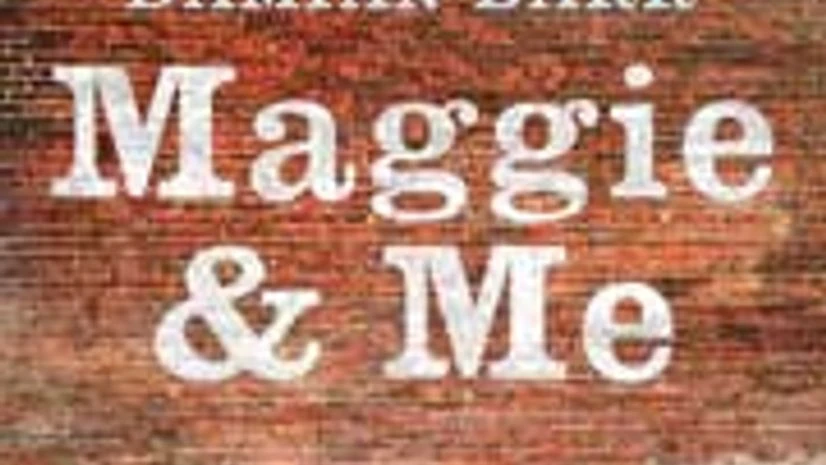Damian Barr's Maggie & Me might, as recently as ten years ago, have been overlooked because it contained all the wrong things. A boringly white family, situated in a boringly unexotic steel town in Scotland, with even the wrong kind of dictator - Maggie Thatcher, rather than an Idi Amin or a Trujillo.
Just last week, Joel Brueklander drew attention to how much the old regime had changed. "Let's acknowledge that straight, white males' stranglehold on American culture really is loosening. They are no longer expected to speak for everyone else," he wrote in The Atlantic. Indeed, the only people lamenting The Death of Literature were white men, chiefly straight. (Except for VS Naipaul, but-oh wait, straight man who identifies as UK citizen, not Indian or African? Check.)
For a small handful of writers, that may have been liberating. When the novel in English doesn't have to be written exclusively by the English, it is no longer the white man's burden. This year's Booker longlist is typical, with authors from Zimbabwe, Ireland, Malaysia and Canada on the list.
Also Read
That frees up writers like Barr, whose Maggie & Me can be read by those who saw Thatcher's England at a distance in exactly the same way that we might have read Taiye Selasi's Ghana Must Go, which follows a Ghanaian immigrant family in America. If both places, Thatcher's England and the America of a Ghanaian immigrant, are equally "exotic", they are also equally capable of capturing the reader's interest.
Barr's memoir is about the most accurate portrait of Thatcher's England you'll get, short of reading back issues of Private Eye. He has all his pop references down to perfection, from the fashion for Christopher Reeve's kiss curls and The Muppet Show to the craze in schools for novelty erasers with Greetings from Lanzarote inscribed on them. He gets it all right, the food-Mushroom Pot Noodles; the ads-Hamlet cigars; the music-Dirty Dancing and Abba; and the politics, what with Thatcher, Thatcher, Milk Snatcher, cutting off free milk to the schools.
In his United Kingdom, as he writes in the first chapter, "this blonde woman rises from rubble again and again like a Cyberman from Doctor Who". Maggie, in the imagination of the child who tells the story, is almost all powerful, the presiding deity of their lives in a council house in Scotland. ""Life must go on as usual," she insists, as if life will do exactly what she tells it.
But the other reason to read Maggie & Me is because it is an extraordinary memoir. It takes a few re-readings to understand just how dark the demons who controlled Barr's childhood were, because he is so light in his telling, so clearly sunny-tempered. It takes at least one reading to realise that this is not well-written fiction, but a true story, because in his telling of his life, Barr is no victim.
He is a survivor, though, of some darkness. When he, his mother and his sister move in with her boyfriend-"this red-faced man who makes the air shake"-his first reaction is to reject his new home. He goes back to his father, who's living with a girlfriend dubbed Mary the Canary, who has to tell him: "This isnae your home any more, son." Barr returns to a house where his mother's boyfriend tutors him on the subtleties of why children are beaten: because Logan has very strict rules-"but only he knows them and they change all the time." His mother finally leaves, after a particularly vicious battering that leaves Damian with a torn, bleeding ear.
At school, he does what every kid does -tries to negotiate the complex and vicious hierarchies of school, falls in love, and realises that the price of being gay is to be hounded and to be called Aidsy. His first major crush, Mark, helps him through the fear that he's going to die of AIDS (only adults die, Mark explains). "Instead of doing maths, me and Mark master the mambo… we want to put Baby in the corner so that we can have [Swayze] all to ourselves."
And so Barr learns to survive, and then much more. He negotiates his first encounters with men in cars who smell of too much Joop! He finds a bar called Bennett's, the first place he's ever been too where it's not just okay to be gay; it's normal to be gay. He survives predators, violence, scorn, bigotry, prejudice and Maggie Thatcher. And in the end, he has a good life, a happy one: perhaps the best revenge of child abuse survivors against those who abused them.
Last month, friends of mine celebrated the fact that they could finally marry, under new laws that made same-sex marriage legal in England. We began to glimpse, just barely, a time when it would be as normal for a child to be gay or bi or any colour of the rainbow, instead of having to fit himself or herself into that dull box marked 'hetero'. Damian Barr's memoir of growing up gay in Thatcher's England is courageous and touching, and I hope there will never be another generation that has to write about how hard it was to "come out", to fight for the simple right to fall in love with whoever you chose.
MAGGIE & ME
Author: Damian Barr
Publisher: Bloomsbury
Pages: 245 pages
Price: Rs 399

)
